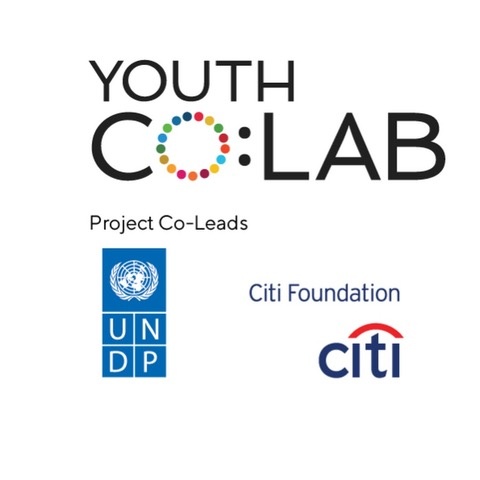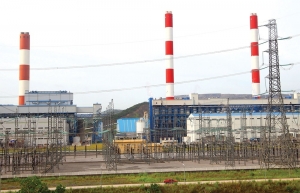Asia Pacific social entrepreneurs call for stronger systems to address climate risks
A new report by Youth Co:Lab. surveying over 1,000 young social entrepreneurs across 25 markets in the Asia Pacific has highlighted climate change as a global emergency, placing the spotlight on how this group is taking bold steps to address climate challenges.
Those surveyed were increasingly involved with developing climate solutions and working with organisations that were taking action to minimise the negative environmental impact of their operations.
 |
The report found that 85 per cent of young social entrepreneurs faced challenges in advancing climate action. Among this group, access to adequate financial resources emerged as the biggest obstacle to advancing climate action, with 68 per cent of respondents identifying it as a challenge.
A lack of connection to relevant partners and absence of education and training were the second and third biggest obstacles per 55 per cent and 46 per cent of respondents, respectively.
| Despite the challenges, young social entrepreneurs remain resilient and engaged in climate action. |
Peter Babej, CEO of Citi Asia Pacific said, “We are working with clients and other partners across Citi’s global network to help close gaps highlighted in this report and build a sustainable future. Social entrepreneurs play a critical role in this effort, and we are committed to supporting this inspirational group in developing innovative sustainable solutions.”
In 2020 and 2021, Citi financed and facilitated $222 billion in sustainable finance activity. Citi also committed $1 trillion in sustainable finance by 2030, including $500 billion for environmental finance and $500 billion for social finance.
Despite the challenges, young social entrepreneurs remain resilient and engaged in climate action.
Of these young respondents, 66 per cent actively deliver climate-action-focused products and services, while 80 per cent want to further climate action through their organisations by developing stronger research, designing climate-smart solutions, leading advocacy on climate action, and scaling up existing climate initiatives.
In Vietnam, Youth Co:Lab, an initiative co-led by Citi Foundation and United Nations Development Programme (UNDP), has supported three young entrepreneurs to start FUWA Biotech with the desire to develop industrial home care products that are good for the environment and safe to use. The team makes enzymes for chemical-free cleaning liquids from disposed of pineapple peels.
Every month, FUWA can collect up to 10 tonnes of fruit peels for upcycling in their zero-waste factory to produce cleaning liquids that clean dishes and improve skin health. As a result, many users no longer need to wear gloves while washing the dishes.
FUWA has grown nationwide, and the team expects that by 2023 they will serve at least 5 per cent of Vietnamese consumers and export to other countries. FUWA products were showcased at the Youth Co:Lab Vietnam Competition 2020 where the team won the First Runner-Up Award.
“The story of FUWA Biotech in Vietnam highlights that youth social entrepreneurs can impact the environment. Despite the barriers within the entrepreneurship ecosystem, many young people in Vietnam are leading local solutions to solve climate risks,” said Ramachandran A.S., Vietnam Citi Country Officer.
The report ‘Climate Concern to Climate Action: The Role of Young Social Entrepreneurs’ was commissioned by Youth Co:Lab. It seeks to understand the role that young social entrepreneurs in the Asia Pacific region can play in tackling the climate emergency and the support they need to amplify the impact of climate actions and solutions.
 | Entrepreneurs remain inspirations for Vietnamese youth Vietnamese youth have a spirit of entrepreneurship with nearly half of the young people in the nation aspiring to become entrepreneurs, according to a research report titled Mind the Gap: Mapping Youth Skills for the Future in ASEAN by the ASEAN Foundation in collaboration with Plan International and with support from Google.org. |
 | Energy shortage risks met head-on The government’s plan to reduce fossil fuel use and increase clean energy sources is facing major obstacles, such as dependence on coal, and without new investment the supply will decrease faster than demand, possibly leading to energy shortages. |
What the stars mean:
★ Poor ★ ★ Promising ★★★ Good ★★★★ Very good ★★★★★ Exceptional
Related Contents
Latest News
More News
- $100 million initiative launched to protect forests and boost rural incomes (January 30, 2026 | 15:18)
- Trung Nam-Sideros River consortium wins bid for LNG venture (January 30, 2026 | 11:16)
- Vietnam moves towards market-based fuel management with E10 rollout (January 30, 2026 | 11:10)
- Envision Energy, REE Group partner on 128MW wind projects (January 30, 2026 | 10:58)
- Vingroup consults on carbon credits for electric vehicle charging network (January 28, 2026 | 11:04)
- Bac Ai Pumped Storage Hydropower Plant to enter peak construction phase (January 27, 2026 | 08:00)
- ASEAN could scale up sustainable aviation fuel by 2050 (January 24, 2026 | 10:19)
- 64,000 hectares of sea allocated for offshore wind surveys (January 22, 2026 | 20:23)
- EVN secures financing for Quang Trach II LNG power plant (January 17, 2026 | 15:55)
- PC1 teams up with DENZAI on regional wind projects (January 16, 2026 | 21:18)

 Tag:
Tag:


























 Mobile Version
Mobile Version